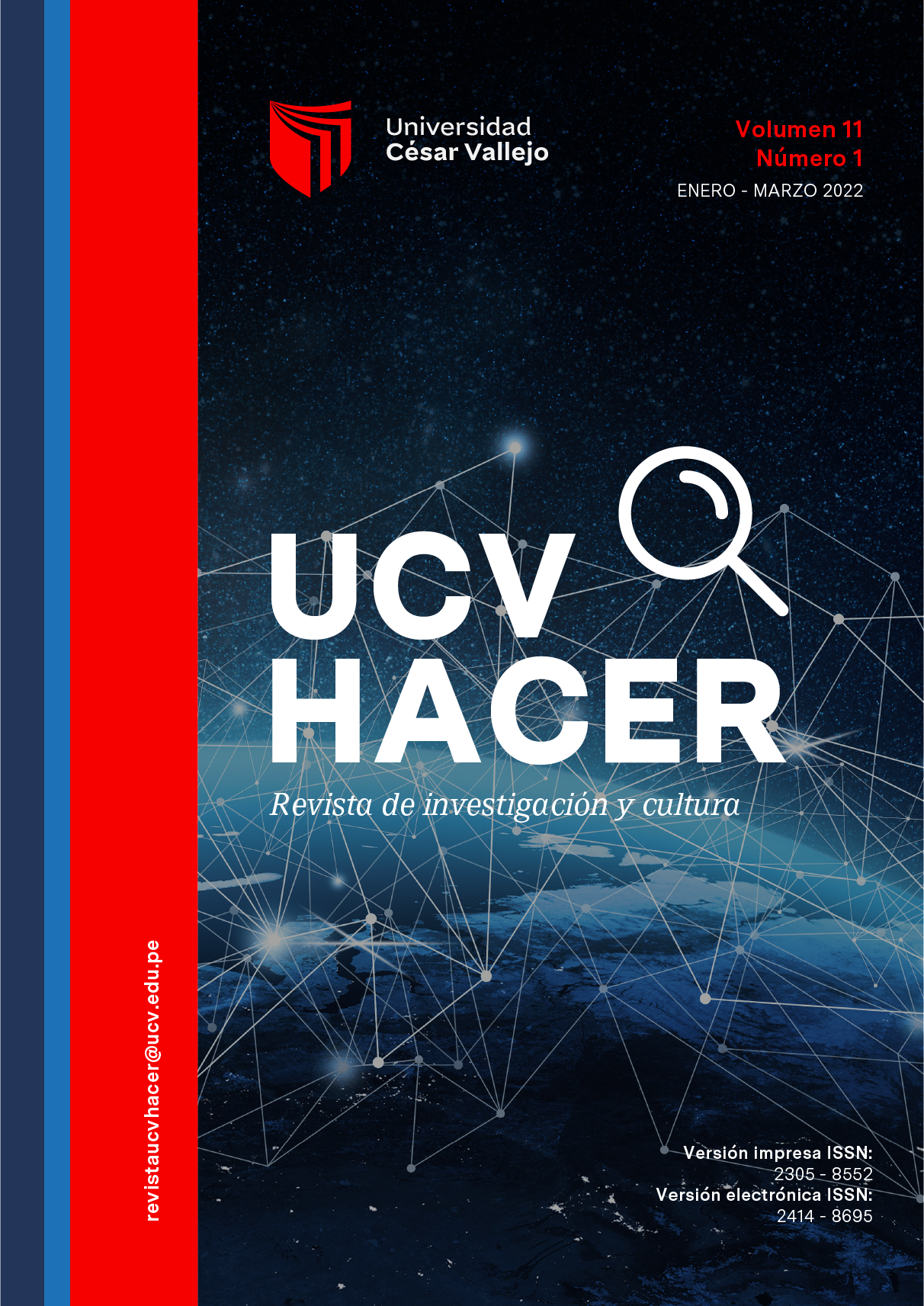Towards an analysis of the polarity of Big Data
DOI:
https://doi.org/10.18050/RevUCVHACER.v11n1a7Keywords:
Big data, Clasificadores, Inteligencia artificialAbstract
Social research on recent technological developments, such as "big data" or artificial intelligence, point to
a certain ambivalence or bipolarity in the different spheres of communication where they are referred to, or
even in the common sense of the different social groups. Thus, for example, there is a rhetoric favorable to
these technologies that identifies them with some opportunities for different commercial sectors, such as
industry 4.0, or with the benefits that they could bring in the medical field; At the same time, a critical discourse points out the risks involved in terms of advancing privacy, media and political manipulation, or the origin of new inequalities or situations of injustice. In this paper we propose a polarity analysis on a corpus of sentences that include the term "big data", constructed from news collected from Argentine online newspapers. In particular, we propose two approaches that combined will allow a more robust analysis: Analysis through the use of lexicons and dictionaries, another through the use of classifiers. This work will allow us to classify the sentences to deepen the understanding of this topic.
Keywords: Big data, classifiers, artificial intelligence.
References
Becerra, G. (2018). Big data como objeto de estudio y método para la investigación empírica en sociología y psicología social. 47 Jornadas Argentinas de Informática & Simposio Argentino de Tecnología y Sociedad, 141–150. http://47jaiio.sadio.org.ar/sites/default/files/STS-13.pdf
Becerra, G. y López-Alurralde, J. P. (2020). Hacia una exploración de las representaciones sociales en torno al big data. 49 Jornadas Argentinas de Informática & Simposio Argentino de Tecnología y Sociedad. http://sedici.unlp.edu.ar/handle/10915/122069
Gravano, A. y Dell’Amerlina Ríos, M. (2014). Spanish DAL: A Spanish Dictionary of Affect in Language. Biblioteca Digital FCEN – UBA. http://digital.bl.fcen.uba.ar/Download/technicalreport/technicalreport_00001.pdf
Hvitfeldt, E. y Silge, J. (2021). Supervised Machine Learning for Text Analysis in R. CRC Press: Taylor & Francis Group. https://smltar.com/
Kitchin, R. (2014). The Data Revolution: Big Data, Open Data, Data Infrastructures and Their Consequences. Sage Publication Ltd. https://doi.org/10.4135/9781473909472
Liu, B. (2015). Sentiment Analysis In Computational Linguistics. Cambridge University Press. https://doi.org/10.1017/CBO9781139084789
Medhat, W., Hassan, A. y Korashy, H. (2014). Sentiment analysis algorithms and applications: A survey. Ain Shams Engineering Journal, 5(4), 1093–1113. https://doi.org/10.1016/j.asej.2014.04.011
Paganoni, M. (2019). Framing big data: a linguistic and discursive approach. Palgrave Macmillan. https://doi.org//10.1007/978-3-030-16788-2_1
Straka, M. y Strakova, J. (2017). Tokenizing, POS Tagging, Lemmatizing and Parsing UD 2.0 with UDPipe. Proceedings of the CoNLL 2017 Shared Task: Multilingual Parsing from Raw Text to Universal Dependencie, 88–99. https://doi.org/10.18653/v1/K17-3009
Team R Core. (2018). R: A language and environment for statistical computing. R Foundation for Statistical Computing. https://www.r-project.org/
Downloads
Published
Versions
- 2022-03-09 (2)
- 2022-03-10 (1)
How to Cite
Issue
Section
License
Copyright (c) 2022 UCV Hacer

This work is licensed under a Creative Commons Attribution-NonCommercial-ShareAlike 4.0 International License.










